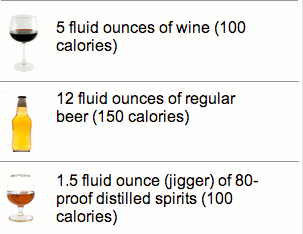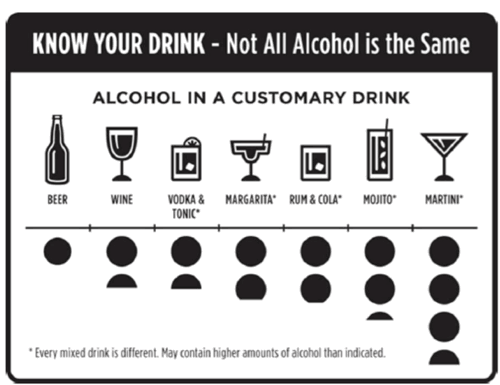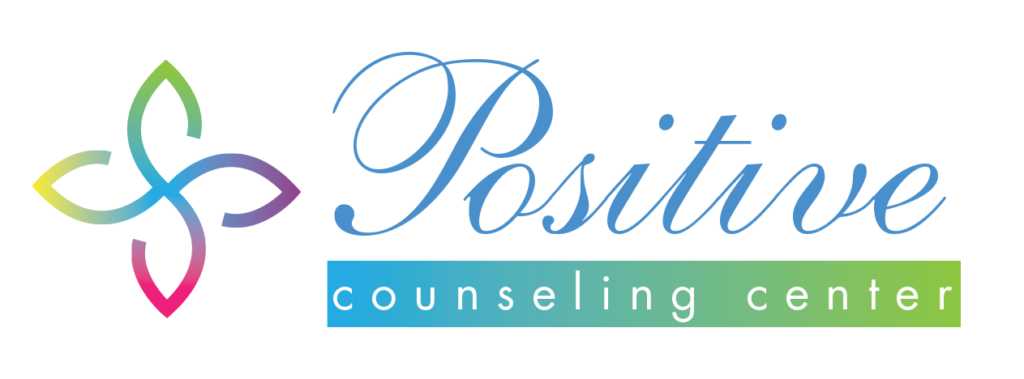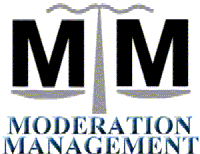Join our Moderation Management Group or Recovery Choices Group!
| A drink is defined as: |
 |
Definitively, the U.S. Department of Health and Human Services considers moderate drinking to be no more than one drink per day in women and two drinks per day in men. This definition applies to day-to-day consumption – not an average of drinking overall. Therefore a man/woman who drinks a couple of six packs on the weekend and abstains the rest of the week is outside the boundaries of moderate consumption.
Since 1956, the American Medical Association has recognized alcoholism as a disease that progresses and may become terminal if left untreated over time. The AMA’s classification of alcohol dependence puts it in the same category as other diseases, such as diabetes, since alcoholism is associated with both lifestyle and genetic factors. There is a wide gap between moderate drinking and alcohol dependence, although the lines are often blurred for people with a poor understanding of alcohol abuse and alcohol dependence. A person with alcohol dependence consumes alcohol despite negative consequences and at the more severe end of the alcohol dependence continuum experiences physiological withdrawal symptoms when not consuming alcohol. These individuals are likely to experience strong cravings for alcohol. Alcohol dependence may be causing problems physically, mentally, financially and with family, friends and work relationships.
It is important to recognize that people who exceed moderate drinking limits do not necessarily have alcoholism, but instead may be exhibiting patterns of alcohol abuse, which includes heavy drinking and binge drinking. This type of behavior can lead to dependence in some individuals who continue to abuse alcohol long-term.
Learning to Consume Moderately
 Countless resources are available to individuals with alcoholism. However, it is more difficult for a person to manage this disease once he or she has reached dependency. Instead, it is important to recognize the beginning stages of problem drinking and take steps to enforce moderation.
Countless resources are available to individuals with alcoholism. However, it is more difficult for a person to manage this disease once he or she has reached dependency. Instead, it is important to recognize the beginning stages of problem drinking and take steps to enforce moderation.
These programs tend to be more successful for problem drinkers, as they recognize binge drinking or excessive drinking to be a learned behavior, rather than a disease. They teach problem drinkers how to consume alcohol moderately and responsibly instead of requiring abstinence. People who participate in Moderation Management programs tend to feel empowered and personally responsible for their health and wellbeing, as well as that of others.One organization – Moderation Management – supports early intervention programs, which are generally shorter, more affordable, and less rigorous than rehabilitative programs for alcoholism. The program is comprised of several steps, much like an abstinence program. However, those steps involve education about moderate consumption, as well as goal-setting and self-management exercises.
Because some problem drinkers eventually develop alcohol dependency, approximately 1 in 3 people who attend moderation programs go on to participate in abstinence programs such as the 12-steps program of Alcoholics Anonymous or S.M.A.R.T. recovery. However, people who are not affected by alcoholism can learn to drink responsibly before the problem becomes more severe.
Resources:
Moderation Management: What is Moderation Management?
Centers for Disease Control: Alcohol and Public Health







